Academic Books by Our People
For a full list of publications from the School of Communication and Arts, please visit eSpace.
For further information including updating, please contact: communication-arts@uq.edu.au.
2024
 The Affect Lab : The History and Limits of Measuring Emotion
The Affect Lab : The History and Limits of Measuring Emotion
Written by: Grant Bollmer
Espace link: https://espace.library.uq.edu.au/view/UQ:1289bac
Publisher: University of Minnesota Press
Details: The Affect Lab examines the use of measurement tools to argue that research on emotions has confused the physiology of emotion with the tools that define its inscription. Offering a new critique of affect and affect theory, Grant Bollmer demonstrates how deferrals to psychology andneuroscience in contemporary theory and philosophy neglect the material of experimental, scientific research.
 Internet-ontologies-Things
Internet-ontologies-Things
Written by: Sungyong Ahn
Espace link: https://espace.library.uq.edu.au/view/UQ:9d6ec03
Publisher: Bloomsbury Publishing
Details: This book argues how power mobilizes various algorithmic and ontological objects—from a smartwatch to a smart building—to identify a greater number of hidden problems within the physical domains of the IoT, from the wearer’s body to her smart city. The Internet of Things is the vast system of devices, objects, non-human animals, and people that collect and transfer data via a wireless network that does not require human interaction. It is now common in software studies to think of algorithmic objects, like the ‘things’ in the Internet of Things, as ontological agents as much as we humans are. While recent post-humanist philosophies, such as speculative realism and its object-oriented ontology, have supported this methodological elevation of objects to autonomous and sentient beings, this philosophical discourse is overlooked as well as the transformation that has happened to the materiality of our everyday lives embedded with these smart objects. From this changing infrastructure, Internet-ontologies-Things discovers the new form of economic and political power whose algorithmic governance finds its justification from our newly-cultivated paranoia about unknown computational problems.
 The Influencer Factory: A Marxist Theory of Corporate Personhood on YouTube
The Influencer Factory: A Marxist Theory of Corporate Personhood on YouTube
Written by: Grant Bollmer and Katherine Guinness
Espace link: https://espace.library.uq.edu.au/view/UQ:99aac4e
Publisher: Stanford University Press
Details: Influencers are more than social media personalities who attract attention for brands, argue Grant Bollmer and Katherine Guinness. They are figures of a new transformation in capitalism, in which the logic of the self is indistinguishable from the logic of the corporation. Influencers are emblematic of what Bollmer and Guinness call the "Corpocene": a moment in capitalism in which individuals achieve the status of living, breathing, talking corporations. Behind the veneer of leisure and indulgence, most influencers are laboring daily, usually for pittance wages, to manufacture a commodity called "the self"—a raw material for brands to use—with the dream of becoming corporations in human form by owning and investing in the products they sell. Refuting the theory that digital labor and economies are immaterial, Bollmer and Guinness search influencer content for evidence of the material infrastructure of capitalism. Each chapter looks to what literally appears in the backgrounds of videos and images: the houses, cars, warehouses, and spaces of the market that point back to the manufacturing and circulation of consumer goods. Demonstrating the material reality of producing the self as a commodity, The Influencer Factory makes a crucial contribution to our understanding of contemporary economic life.
 Punchdrunk on the Classics: Experiencing Immersion in The Burnt City and Beyond
Punchdrunk on the Classics: Experiencing Immersion in The Burnt City and Beyond
Written by: Emma Cole
Espace link: https://espace.library.uq.edu.au/view/UQ:90a97a7
Publisher: Springer International Publishing
Details: This book includes the first ever rehearsal study of an immersive theatre production, is the product of a unique knowledge-exchange arrangement between the researcher and Punchdrunk theatre company, and features the first full-length study of the role of ancient literature in immersive theatre.
2023
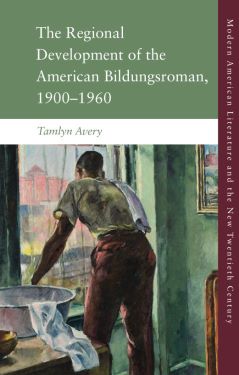 The Regional Development of the American Bildungsroman, 1900-1960
The Regional Development of the American Bildungsroman, 1900-1960
Written by: Tamlyn Avery
Espace link: https://espace.library.uq.edu.au/view/UQ:82556f5
Publisher: Edinburgh University Press
Details: Why did the Bildungsroman, defined as the novel of development, and its protagonist Youth, become the symbolic form of the U.S.’s cultural preoccupation with regional difference amidst the nation’s rapid but uneven development c.1900–1960? As a genre that historically represented the young individual’s development in national-historical time, the Bildungsroman became one crucial means of configuring the culturally, politically, and economically asymmetrical effects of national modernization and the U.S.’s political ascendence within the capitalist world-system. Responding to that predicament, the novel of uneven development rose to salience, led by its protagonist, the unfixed youth, whose development within the national-historical time of Americanization is unsettled by their preoccupation with regional difference: an immobilizing entanglement I call American literature’s regional complex. This book maps four prominent variations across the Midwest, Northeast, South, and Southwest that responded to that uneven development, fragmenting, and ultimately denying the Bildungsroman’s consolidation into a coherent nationalist form.
 Reluctant Sleuths, True Detectives
Reluctant Sleuths, True Detectives
Written by: Jason Jacobs
Espace link: https://espace.library.uq.edu.au/view/UQ:fa5b452
Publisher: State University of New York Press
Details: Reluctant Sleuths, True Detectives examines the detective figure in four noir and neo-noir films: Out of the Past (1947), Notorious (1946), Vertigo (1958), and Chinatown (1974). Exploring the way that these characters each move from an initial state of reluctant passivity to one of passionate engagement with the world around them, it questions the cinematic forces required to motivate and move them. In its close examinations of each film, the book meditates on the detectives' hunts and how they interact with the cinematic apparatus that captures and presents them to an audience, and it tracks the receptive experience of these films in relation to these questions of motivation and movement.
 The Antipodean Laboratory: Making Colonial Knowledge, 1770-1870
The Antipodean Laboratory: Making Colonial Knowledge, 1770-1870
Written by: Anna Johnston
Espace link: https://espace.library.uq.edu.au/view/UQ:a62de9c
Publisher: Cambridge University Press
Details: In this compelling study, Anna Johnston shows how colonial knowledge from Australia influenced global thinking about convicts, natural history and humanitarian concerns about Indigenous peoples. These were fascinating topics for British readers, and influenced government policies in fields such as prison reform, the history of science, and humanitarian and religious campaigns. Using a rich variety of sources including natural history and botanical illustrations, voyage accounts, language studies, Victorian literature and convict memoirs, this multi-disciplinary account charts how new ways of identifying, classifying, analysing and controlling ideas, populations, and environments were forged and circulated between colonies and through metropolitan centres. They were also underpinned by cultural exchanges between European and Indigenous interlocutors and knowledge systems. Johnston shows how colonial ideas were disseminated through a global network of correspondence and print culture.
 Introducing Intercultural Communication
Introducing Intercultural Communication
Written by: Shuang Liu, Zala Volcic, and Cindy Gallois.
Espace link: https://espace.library.uq.edu.au/view/UQ:5369226
Publisher: SAGE publications
Details: Taking a global and critical perspective, this textbook presents the concepts, theories and applications from the field of intercultural communication in a lively and easy-to-follow style. Covering all the essential topics, from immigration and intercultural conflict, to intercultural health communication and communication in the workplace. This cutting-edge 4th edition explains the key theories and concepts, brings theory to life with a range of global case studies, ties key ideas and debates to the reality of intercultural skills and practice, adds a new chapter on intercultural communication and business, and expands coverage of topical areas such as health and crisis communication and virtual communication in the workplace.
 Platform Regulation: Exemplars, Approaches and Solutions
Platform Regulation: Exemplars, Approaches and Solutions
Written by: Pradip Thomas
Espace link: https://espace.library.uq.edu.au/view/UQ:d222978
Publisher: Oxford University Press
Details: Over the last decade or two, a handful of powerful, monopolist platforms have embraced our lives worldwide. They intermediate our socialities and relationships, what we search for on the Internet, and our online purchases. We are living in a global economy that is fuelled by the monetization of affect. One is now only too aware that various platforms are very systematically using the advantages stemming from algorithmic power and platform externalities to mine and privatize personal data that is in turn sold to advertisers who target not just the present but also future economic behaviours of users. One now also hears of the complicity of some of these platforms in data breaches that have contributed to the making and unmaking of political fortunes of key political parties across geographies. This unprecedented power of platforms is, however, being challenged today. Data breaches, evidence of platform manipulations, platform complicities with state surveillance, and their monopolist behaviours and its consequences for competition and data privacy have become the basis for regulatory responses from governments throughout the world. National and regional courts of law have collected a lot of evidence on myriad forms of platform illegalities that discriminate against competitors and that point to the privatization of personal data on a global scale. The proposed volume provides an introduction to some of the issues and challenges related to platform regulation, the conundrums and paradoxes involved, and also to some of the well-conceived and manageable regulatory pathways currently being explored by national and regional governments. It highlights regulatory responses from four jurisdictions - the European Union, USA, India, and Australia.
2022
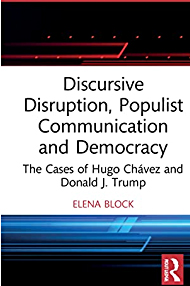 Discursive Disruption, Populist Communication and Democracy
Discursive Disruption, Populist Communication and Democracy
Written by: Elena Block
Espace link: https://espace.library.uq.edu.au/view/UQ:7020e98
Publisher: Routledge 2022
Details: Dive into the world of modern politics with Dr Elena Block as she unravels the current political battlefield and underlines the power of populist communication through the concept of discursive disruption in her second book with Routledge. Designed for academic minds within the fields of political science and communication studies, the contents of this book will assist in the understanding of the ties between populist speech and the increasingly fragile nature of discussions within modern democracy.
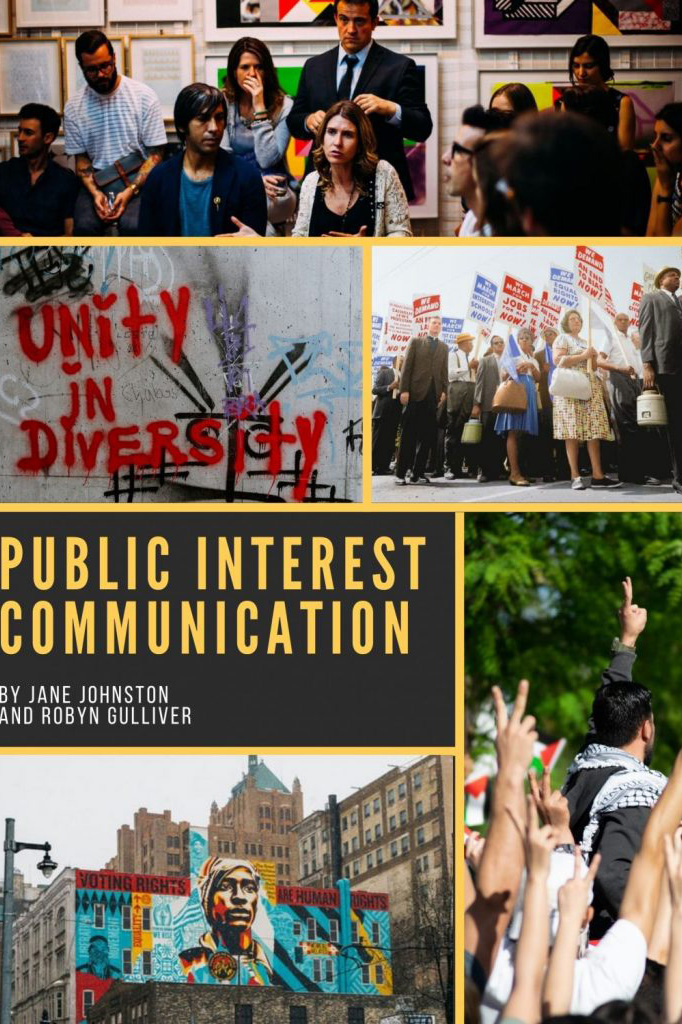 Public Interest Communication (Pressbook)
Public Interest Communication (Pressbook)
Written by: Jane Johnston and Robyn Gulliver
Espace link: https://espace.library.uq.edu.au/view/UQ:316efde
Publisher: Published under the Creative Commons 2022
Details: Bringing together aspects of ethics, social and civil responsibility, advocacy and publics, this introductory textbook provides a new approach to communication theory and practice in the post truth era. In this book, students will examine fields that intersect with public interest frameworks to provide building blocks and strategies for effective communication. These include organisational listening, capacity building, partnerships and alliances, the role of social enterprises, the concepts of 'wicked problems' and 'discourse arenas', and the importance of participation and activism in generating democratic debate. The book examines social problems and interest conflicts that are faced every day - from environmental degradation to homelessness; public health to media power - and considers the positions of different publics and individuals in navigating the communication of public interest.
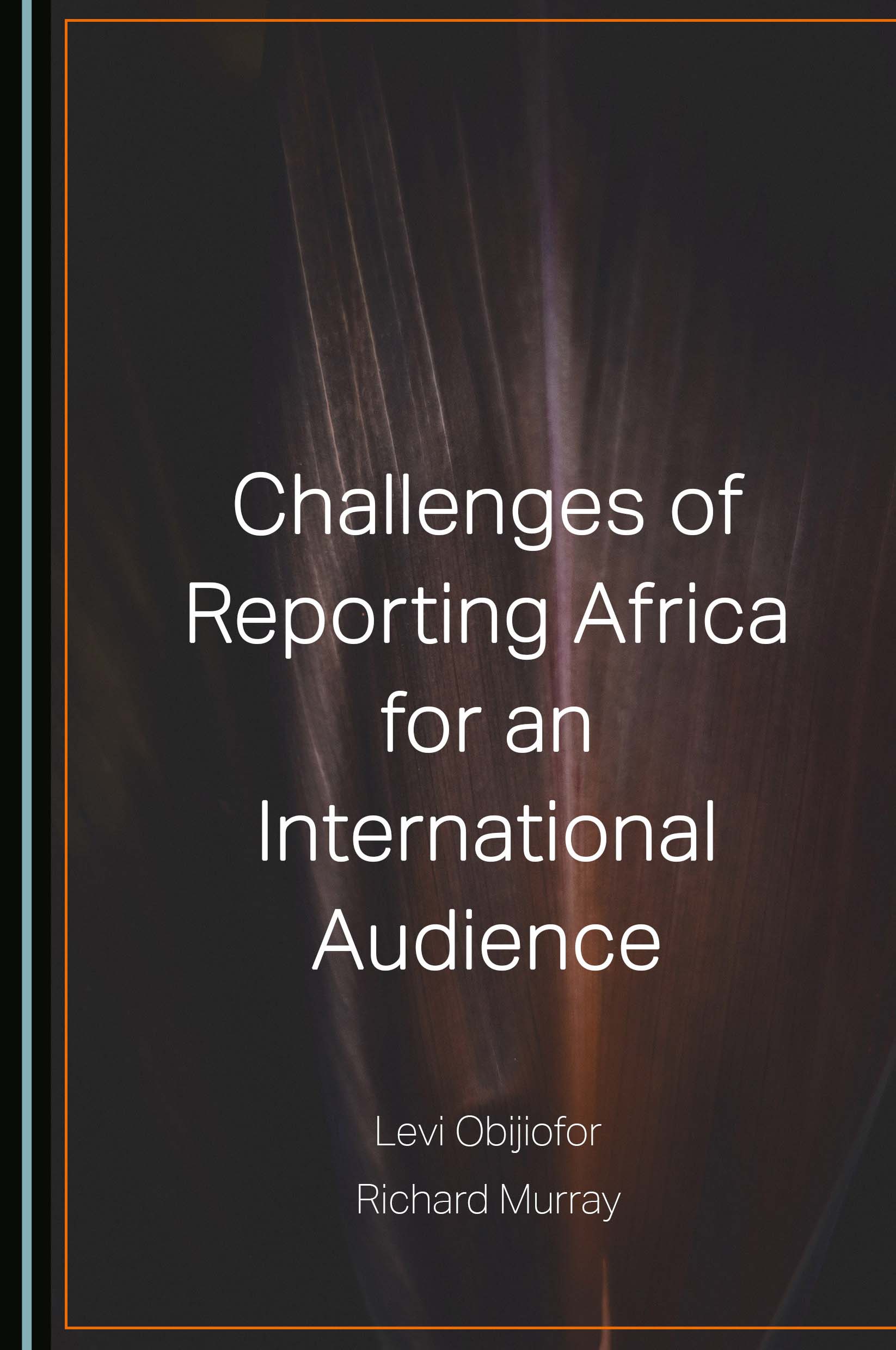 Challenges of Reporting Africa for an International Audience
Challenges of Reporting Africa for an International Audience
Written by: Levi Obijiofor and Richard Murray
Espace link: https://espace.library.uq.edu.au/view/UQ:7747fe5
Publisher: Cambridge Scholars Publishing 2022
Details: This book systematically examines the challenges that confront foreign correspondents in covering Africa for an international audience in the digital era. It explores factors that influence how Africa is reported in international news and the challenges of journalism practice in Africa, including how foreign correspondents carry out their job. The book takes a thematic approach to understanding the contemporary international news environment in context and in flux, and addresses international journalism practices in Africa, particularly the factors that influence how the continent is reported. The book is inclusive and truly international in scope because it looks at issues that are rarely considered when examining how Africa is reported.
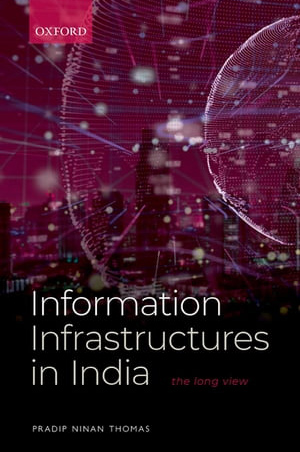 Information Infrastructures in India: The Long View
Information Infrastructures in India: The Long View
Written by: Pradip Thomas
Espace link :https://espace.library.uq.edu.au/view/UQ:bec02ee
Publisher: Oxford University Press 2022
Details: This book explores the past and present of information infrastructures in India. Grounded in infrastructure theory, it explores the historical continuities between information infrastructures in colonial and post-colonial India and the compulsions of information infrastructures in contemporary India. This volume highlights the roles played by private and public sector entities in shaping information infrastructures in India, the political economy of growth in this sector and the challenges faced by the State in regulating information platforms that are also information infrastructures. It includes separate chapters on oceanic cable infrastructures that account for more than 90 percent of data traffic between India and the rest of the world and the political economy of India's satellite program.
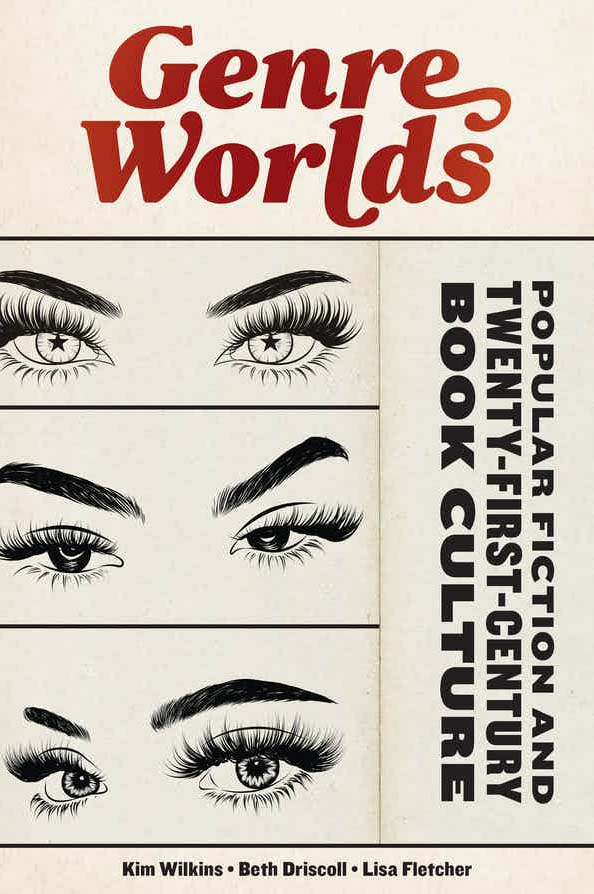 Genre Worlds: Popular Fiction and Twenty-First-Century Book Culture
Genre Worlds: Popular Fiction and Twenty-First-Century Book Culture
Written by: Kim Wilkins, Beth Driscoll, and Lisa Fletcher.
Espace link :https://espace.library.uq.edu.au/view/UQ:3bafabf
Publisher: University of Massachusetts Press
Details: Sitting at the intersection of literary studies, genre studies, fan studies, and studies of the book and publishing cultures, Genre Worlds considers how contemporary genre fiction is produced and circulated on a global scale. Its authors propose an innovative theoretical framework that unfolds genre fiction's most compelling characteristics: its connected social, industrial, and textual practices. As they demonstrate, genre fiction books are not merely texts; they are also nodes of social and industrial activity involving the production, dissemination, and reception of the text
2021
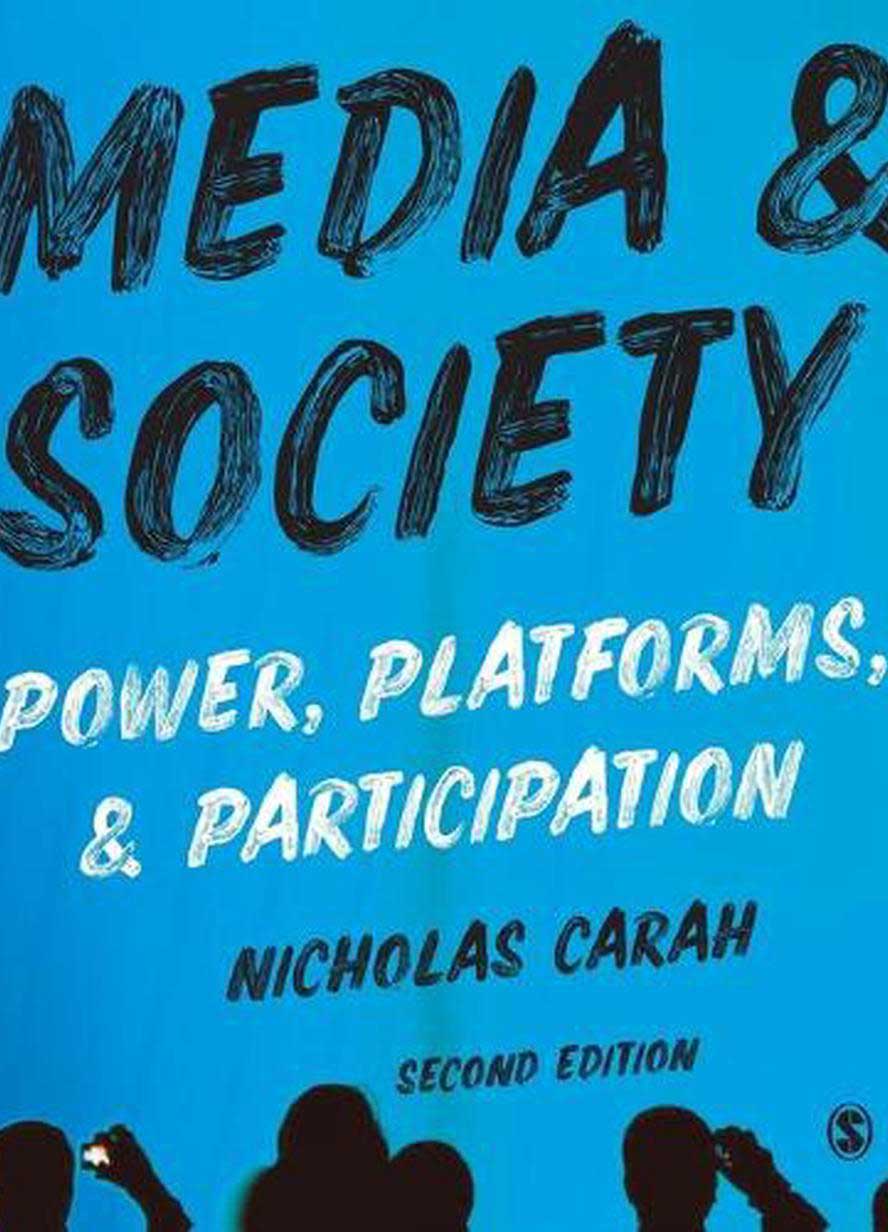 Media and Society
Media and Society
Written by: Nicholas Carah
Espace link: coming soon
Publisher: Sage Publications
Details: Media & Society introduces the role of the media in social, cultural, political and economic life, unpacking the increasing entanglement of digital media technology with our everyday lives. It explores the relationship between meaning and power in an age of participatory culture, social media and digital platforms. An age where we both create and consume content, and where we both give and gain attention – translating our social lives into huge flows of data.
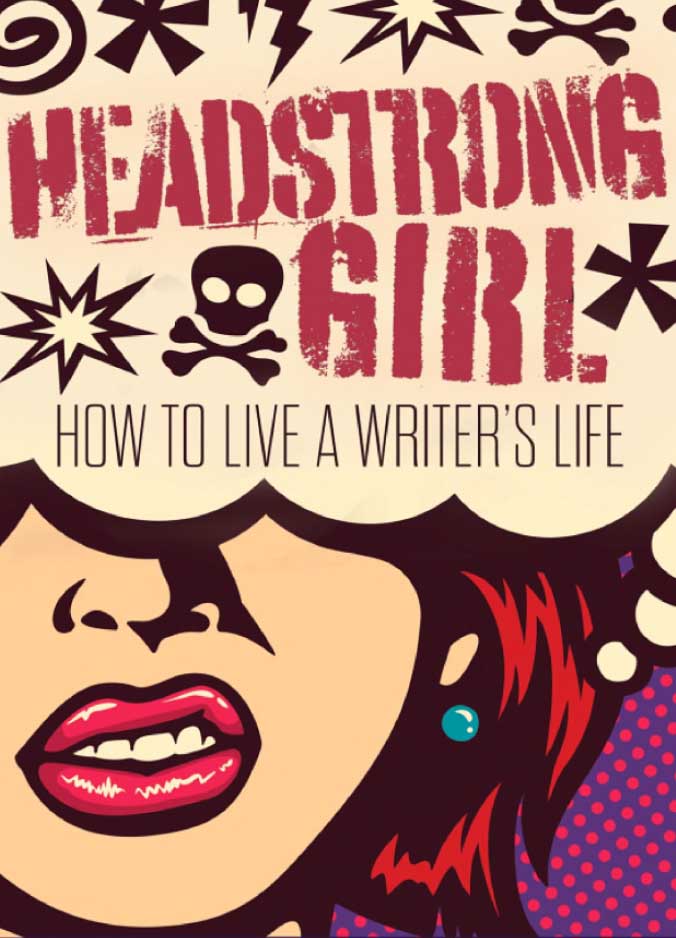 Headstrong Girl: How to Live a Writer's Life
Headstrong Girl: How to Live a Writer's Life
Written by: Kim Wilkins
Espace link: https://espace.library.uq.edu.au/view/UQ:01e3ede
Publisher: Brain Jar Press 2021
Details: The path to happiness in writing is always in the process: the imagining and the writing. In these essays, Kim Wilkins—the celebrated author behind Daughters of the Storm, Giants of the Frost, and (as Kimberley Freeman) Wildflower Hill and Stars Across The Ocean—offers the collected writing wisdom she’s accumulated across her career. Drawing on years of experience delivering workshops, lectures, and articles, Headstrong Girl features Wilkins’s collected advice on both living the life of a writer and telling great stories, including topics such as the importance of persistence, turning off social media, anchoring scenes for your audience, and creating an effective protagonist and supporting casts for your novel.
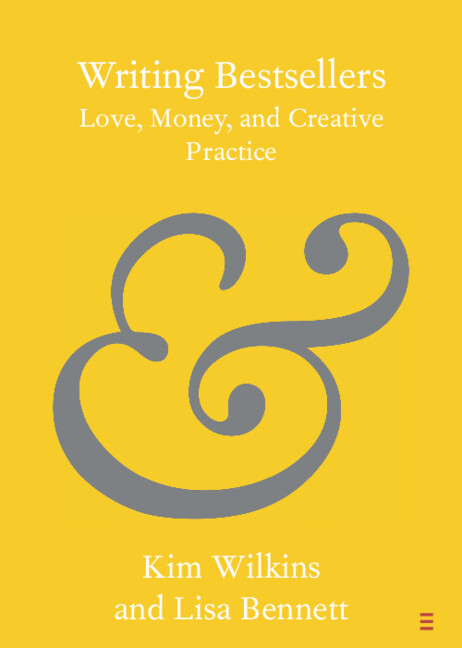 Writing Bestsellers: Love, Money, and Creative Practice
Writing Bestsellers: Love, Money, and Creative Practice
Written by: Kim Wilkins and Lisa Bennett
Espace link: https://espace.library.uq.edu.au/view/UQ:56f139b
Publisher: Cambridge University Press
Details: While the term 'bestseller' explicitly relates books to sales, commercially successful books are also products of individual creative work. This Element presents a new perspective on the relationship between art and the market, with particular reference to bestselling writers and books. We examine some existing perspectives on art's relationship to the marketplace to trouble persistent binaries that see the two in opposition; we break down the monolith of the marketplace by thinking of it as made up of a range of invested, non-hostile participants such as publishing personnel and readers; we articulate the material dimensions of creative writing in the industry through the words of bestselling writers themselves; and we examine how the existence of bestselling books and writers in the world of letters bears enormous influence on the industry, and on the practice of other writers.
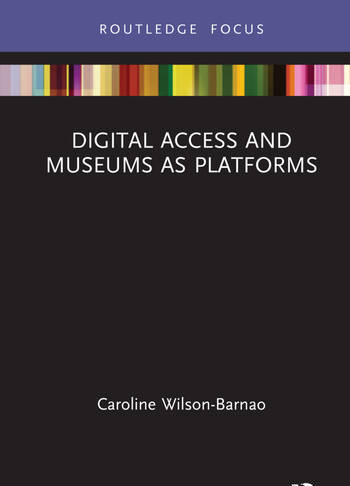 Digital Access and Museums as Platforms
Digital Access and Museums as Platforms
Written by: Caroline Wilson-Barnao
Espace link: https://espace.library.uq.edu.au/view/UQ:eea66c7
Publisher: Routledge 2021
Details: Digital Access and Museums as Platforms draws on interviews with museum practitioners, along with a range of case studies from public and private institutions, in order to investigate the tensions and benefits involved in making cultural collections available using digital technologies. Taking a media and critical studies approach to the museum and raising questions about the role of privately owned search engines in facilitating museum experiences, the book questions who collects what, for whom objects are collected and what purpose these objects and collections serve. Connecting fieldwork undertaken in Australia and New Zealand with the global practices of technology companies, Wilson-Barnao brings attention to an emerging new model of digital ownership and moderation.
2020
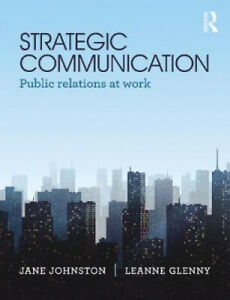 Strategic Communication: Public relations at work
Strategic Communication: Public relations at work
Written by: Jane Johnston and Leanne Glenny
Espace link: coming soon
Publisher: Routledge 2020
Details: Communication and relationships sit at the centre of our hyper-connected lives, and their effective management is a strategic necessity for all organisations today. As the communication and public relations industries continue to grow globally, they offer a dynamic career for those with the right skills and knowledge. Jane Johnston and Leanne Glenny show how strategic communication and public relations plug into the social, economic and political world, creating crucial links between organisations and people. They explain how communication professionals build partnerships, motivate and engage stakeholders, manage content, media and planning, develop reputations, and troubleshoot crisis communication.
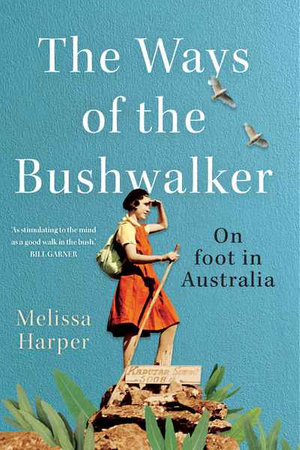 The Ways of the Bushwalker : On foot in Australia
The Ways of the Bushwalker : On foot in Australia
Written by: Melissa Harper
Espace link: https://espace.library.uq.edu.au/view/UQ:591cc52
Publisher: NewSouth Publishing 2020
Details: Australians have always loved to step out in nature, whether off-track or along a marked route. Bushwalking an organised long-distance walk in rugged terrain that requires maps and camping equipment, or a family day out is one of our most popular pastimes. This landmark book, now updated, was the first to delve into its rich and sometimes quirky history. From the earliest days of European settlement, colonists found pleasure in leisurely strolls through the bush, collecting flowers, sketching, bird watching and picnicking. Yet over time, walking for the sake of walking became the dominant motive. Walking clubs proliferated, railways organised mystery hikes attended by thousands, and Paddy Pallin established his equipment business. Bushwalking serious walking was invented.
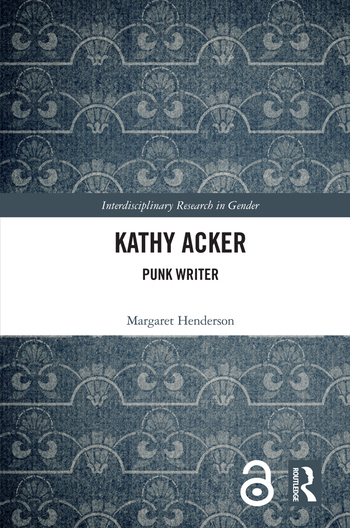 Kathy Acker: Punk Writer
Kathy Acker: Punk Writer
Written by: Margaret Henderson
Publisher: Routledge 2020
Details: This project is a feminist study of the idiosyncratic oeuvre of Kathy Acker and how her unique art and politics, located at the explosive intersection of punk, postmodernism, and feminism, critiques and exemplifies late twentieth-century capitalism. There is no female or feminist writer like Kathy Acker (and probably no male either). Her body of work—nine novels, novellas, essays, reviews, poetry, and film scripts, published in a period spanning the 1970s to the mid 1990s—is the most developed body of contemporary feminist postmodernist work and of the punk aesthetic in a literary form.
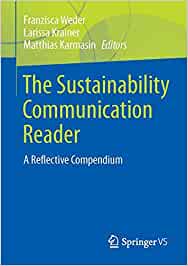 The Sustainability Communication Reader: a reflective compendium
The Sustainability Communication Reader: a reflective compendium
Written by: Franzisca Weder, Larissa Krainer, and Matthias Karmasin
Espace link: https://espace.library.uq.edu.au/view/UQ:8de74e1
Publisher: VS Verlag für Sozialwissenschaften 2020
Details: Following the United Nations Sustainable Development Goals, which are intended to transform the world as it is known, we seek for a multidisciplinary discussion of the role communication plays in realizing these goals. With complementing theoretical approaches and concepts, the book offers various perspectives on communication practices and strategies on an individual, organizational, institutional, as well as public level that contribute, enable (or hinder) sustainable development. Presented case studies show methodological as well as issue specific challenges in sustainability communication. Therefore, the book introduces and promotes innovative methods for this specific area of research.
2019
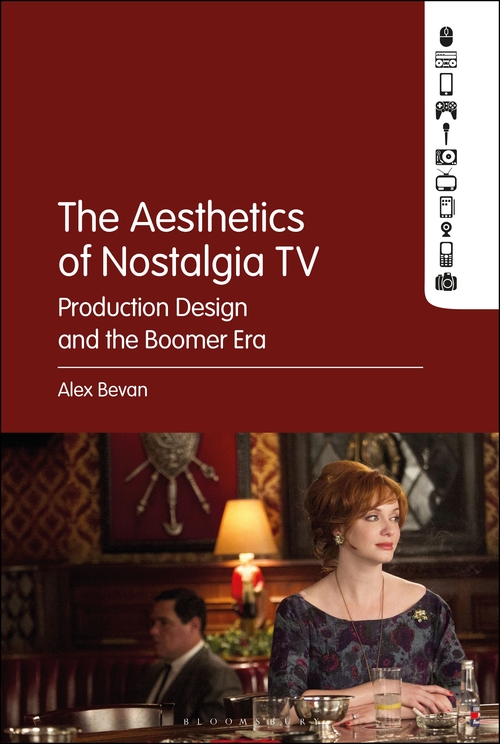 The Aesthetics of Nostalgia TV: Production Design and the Boomer Era
The Aesthetics of Nostalgia TV: Production Design and the Boomer Era
Written by: Alex Bevan
Espace link: https://espace.library.uq.edu.au/view/UQ:bad7e67
Publisher: Bloomsbury 2019
Details: The Aesthetics of Nostalgia TV explores the aesthetic politics of nostalgia for 1950s and 60s America on contemporary television. Specifically, it looks at how nostalgic TV production design shapes and is shaped by larger historical discourses on gender and technological change, and America's perceived decline as a global power. Alex Bevan argues that the aesthetics of nostalgic TV tell stories of their own about historical decline and progress, and the place of the baby boomer television suburb in American national memory. She contests theories on nostalgia that see it as stagnating, regressive, or a reversion to outdated gender and racial politics, and the technophobic longing for a bygone era; and, instead, argues nostalgia is an important form of historical memory and vehicle for negotiating periods of historical transition. The book addresses how and why the shows construct the boomer era as a placeholder for gender, racial, technological, and declensionist discourses of the present.
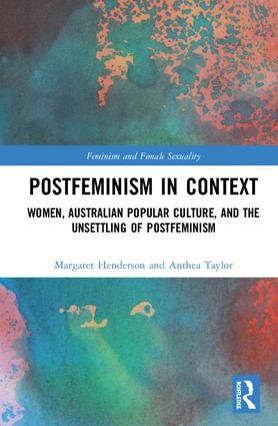 Postfeminisim in Context: Women, Australian Popular Culture, and the Unsettling of Postfeminisim
Postfeminisim in Context: Women, Australian Popular Culture, and the Unsettling of Postfeminisim
Written by: Margaret Henderson and Anthea Taylor
Espace link: https://espace.library.uq.edu.au/view/UQ:aec44f3
Publisher: Routledge 2019
Details: Margaret Henderson and Anthea Taylor argue that ‘postfeminism’, as a critical term, has been too often deployed in ways that fail to account for historical and cultural specificity. This book analyses Australian popular culture – chick lit novels; ‘dramedy’ television shows; women’s magazines; YouTube beauty vlogs; self-help manuals; and newspapers – to reveal the tensions, contradictions and ambiguities that have always been constitutive of postfeminism, including in Australia. Examining how these popular forms intervene in dominant conversations about contemporary Australian femininities, Postfeminism in Context maps the ways in which various aspects of Australia’s history and national identity have shaped its postfeminism. While Henderson and Taylor identify some of the limited postfeminist tropes and patterns of representation evident in comparable locales, they also find that Australian popular culture has responded to feminism in a much more hopeful way.
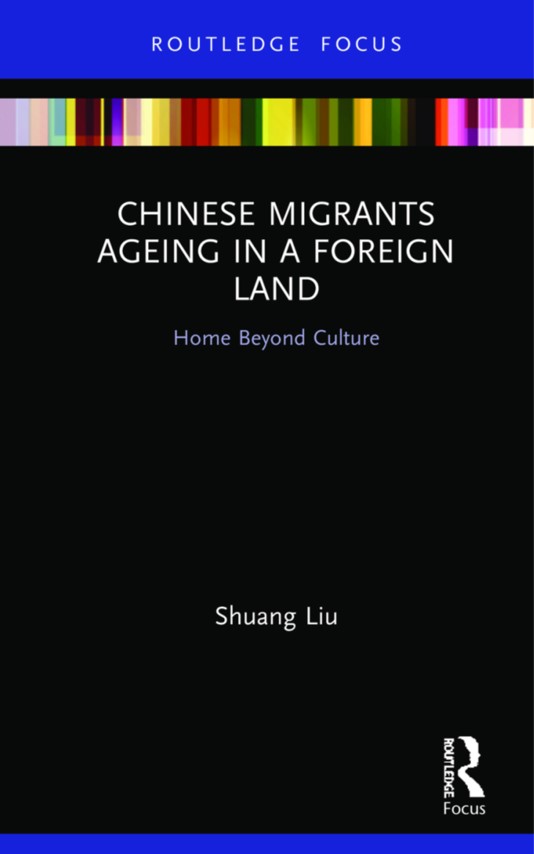 Chinese Migrants Ageing in a Foreign Land
Chinese Migrants Ageing in a Foreign Land
Written by: Shuang Liu
Espace link: https://espace.library.uq.edu.au/view/UQ:9c28e3d
Publisher: Routledge 2019
Details: This book advances a new understanding of acculturation processes for older migrants, drawing on empirical data from migrants of Chinese heritage in Australia. It challenges the traditional models of acculturation, questions the conventional notion of integration and analyses the fluid nature of cultural identities. Drawing on insights from environmental gerontology, intercultural communication and acculturation theories, it conceptualises ageing in a foreign land as a home-building process, highlighting the collective contributions of individual, community, social, cultural, technological and environmental factors to older migrants’ well-being. A consideration of what it means to age ‘in place’ for those whose home is not necessarily attached to one place and one culture, this volume will appeal to social scientists with interests in ageing, gerontology, migration and diaspora, as well as those working in the fields of aged care policy.
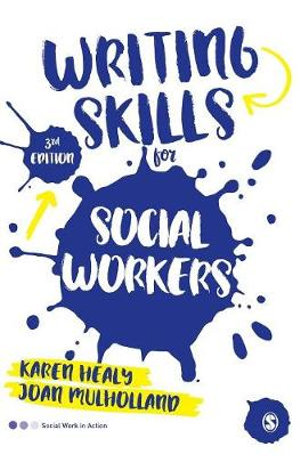 Writing skills for social workers
Writing skills for social workers
Written by: Joan Mulholland and Karen Healy
Espace link: https://espace.library.uq.edu.au/view/UQ:39c67fd
Publisher: Sage 2019
Details: Social work students are required to communicate in writing across a variety of practice methods and contexts and this book has been designed to help them develop the skills to do this with confidence during their qualifying degree and throughout their professional career. The book covers a wide range of writing skills, including writing up case-notes, report writing, writing proposals, completing a literature review, writing journal articles and successful funding applications. New content includes: new material on confidentiality and the use of encryption reference to recent changes to regulation and new material on the pressures of staying up-to-date with new technology extended coverage of collaborative writing and group working skills up-to-date references, further reading and links to professional standards and CPD.
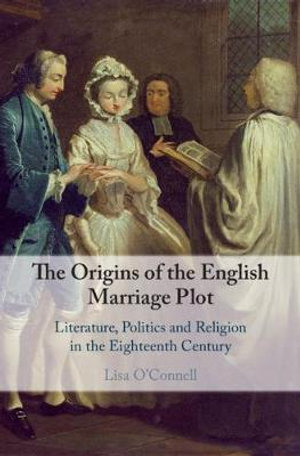 The Origins of the English Marriage Plot: Literature, Politics and Religion in the Eighteenth Century
The Origins of the English Marriage Plot: Literature, Politics and Religion in the Eighteenth Century
Written by: Lisa O'Connell
Espace link: https://espace.library.uq.edu.au/view/UQ:cd58486
Publisher: Cambridge University Press 2019
Details: Why did marriage become central to the English novel in the eighteenth century? As clandestine weddings and the unruly culture that surrounded them began to threaten power and property, questions about where and how to marry became urgent matters of public debate. In 1753, in an unprecedented and controversial use of state power, Lord Chancellor Hardwicke mandated Anglican church weddings as marriage's only legal form. Resistance to his Marriage Act would fuel a new kind of realist marriage plot in England and help to produce political radicalism as we know it. Focussing on how major authors from Samuel Richardson to Jane Austen made church weddings a lynchpin of their fiction, The Origins of the English Marriage Plot offers a truly innovative account of the rise of the novel by telling the story of the English marriage plot's engagement with the most compelling political and social questions of its time.
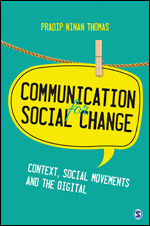 Communication for Social Change: Context, Social Movements and the Digital
Communication for Social Change: Context, Social Movements and the Digital
Written by: Pradip Thomas
Espace link: https://espace.library.uq.edu.au/view/UQ:aba447d
Publisher: Sage 2019
Details: Communication for Social Change: Context, Social Movements and the Digital is a critical introduction to communication for social change (CSC) theory. The book presents refreshingly new perspectives and specifically makes the case for CSC theory to factor in context, leanings from social movements and a critique of the digital technology. This book offers perspectives on the historical continuities within this field of study along with the departures that have been hastened and shaped by confluences between ideas and practice as well as by digital technology and social movements. It introduces readers to a raft of new theorists of CSC and puts forth new thinking, new ideas, and a new basis for theorisation of communication for social change.
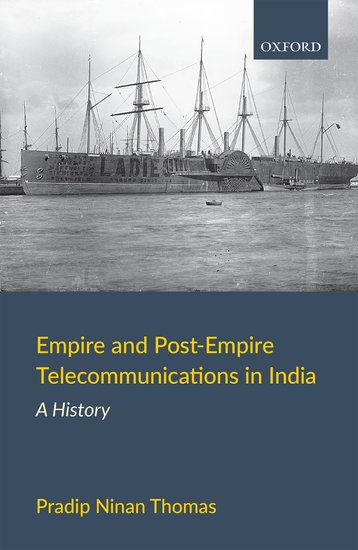 Empire and Post-Empire Telecommunications in India
Empire and Post-Empire Telecommunications in India
Written by: Pradip Thomas
Espace link: https://espace.library.uq.edu.au/view/UQ:bf2235c
Publisher: Oxford University Press 2019
Details: This book, on the history of telecommunications in India is the first of its kind to intentionally link the past and present, the continuities and discontinuities between telecommunications in the era of the British Raj and telecommunications in 21st century India. Beginning with the history of the telegraph, it explores in separate chapters, the history of oceanic cables and wireless in the context of the political economy and compulsions of Empire to control global flows of communications. Telecommunications was vital to the Imperial project and connecting their Jewel in the Crown, India, was a key priority. However inter-colonial rivalries outside and within India and contestations between private and public ownership of telecommunications made that task difficult.
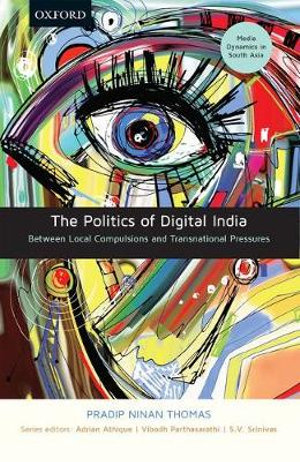 The Politics of Digital India: Between Local Compulsions and External Pressures
The Politics of Digital India: Between Local Compulsions and External Pressures
Written by: Pradip Thomas
Espace link: https://espace.library.uq.edu.au/view/UQ:866689e
Publisher: Oxford University Press 2019
Details: Transforming India into a digital state has been an objective of successive governments in India. However, the digital, by its very nature, is a capricious, multi-dimensional entity. Its operationalization across multiple sectors in India has highlighted the fact that the digital compact with publics in India is a two-edged sword. On the one hand, devices such as mobile phones have enabled access and efficiencies, and on the other, they have increased the scope for surveillance capitalism and the expansion of governmentality. The digital is at the same time a resource, commodity, and process that is absolutely fundamental to most if not all productive forces across multiple sectors. As a part of the Media Dynamics in South Asia series, this volume explores the making of digital India and specifically deals with the contradictions of an imperfect democracy, internal compulsions, and external pressures that continue to play crucial roles in the shaping of the same.
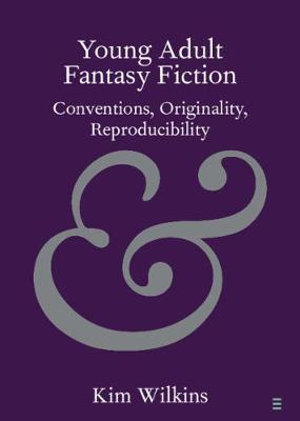 Young adult fantasy fiction: conventions, originality, reproducibility
Young adult fantasy fiction: conventions, originality, reproducibility
Written by: Kim Wilkins
Espace link: https://espace.library.uq.edu.au/view/UQ:5f5d6b8
Publisher: Cambridge University Press 2019
Details: Young adult fantasy (YA fantasy) brings together two established genres - young adult fiction and fantasy fiction - and in so doing amplifies, energises, and leverages the textual, social, and industrial practices of the two genres: combining the fantastic with adolescent concerns; engaging passionate online fandoms; proliferating quickly into series and related works. By considering the texts alongside the way they are circulated and marketed, this Element aims to show that the YA fantasy genre is a dynamic formation that takes shape and reshapes itself responsively in a continuing process over time.
2018
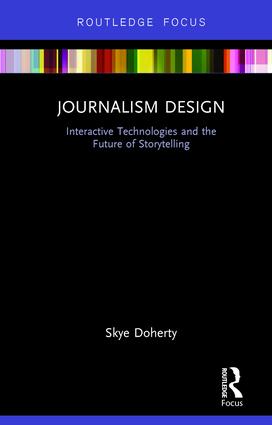 Journalism Design: Interactive Technologies and the Future of Storytelling
Journalism Design: Interactive Technologies and the Future of Storytelling
Written by: Skye Doherty
Espace link: https://espace.library.uq.edu.au/view/UQ:702736
Publisher: Routledge 2018
Details: Journalism Design is about the future of journalism. As technologies increasingly, and continually, reshape the way we interact with information, with each other and with our environment, journalists need new ways to tell stories. Journalists often see technology as something that improves what they are doing or that makes it more convenient. However, the growing might of technology companies has put journalism and news organisations in a difficult position: readers and revenues have moved, and platforms exert increasing control over story design. Skye Doherty argues that, rather than adapting journalism to new technologies, journalists should be creating the technologies themselves and those technologies should be designed for core values such as the public interest. Drawing from theories and practices of interaction design, this book demonstrates how journalists can use their expertise to imagine new ways of doing journalism.
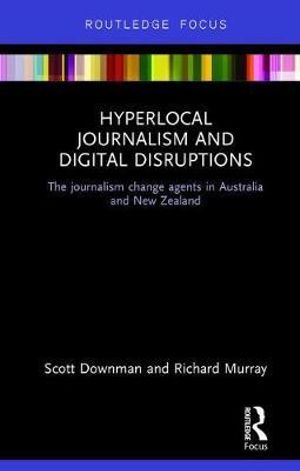 Hyperlocal journalism and digital disruptions: The journalism change agents in Australia and New Zealand
Hyperlocal journalism and digital disruptions: The journalism change agents in Australia and New Zealand
Written by: Scott Downman and Richard Murray
Espace link: https://espace.library.uq.edu.au/view/UQ:684813
Publisher: Routledge 2018
Details: At a time when digital technologies are impacting on the success and sustainability of traditional models of journalism, hyperlocal journalism seeks to restore journalistic integrity, build community, incite change and engage audiences. This book argues for the increased importance of these new forms of localized reporting in the digital age. Hyperlocal Journalism and Digital Disruptions begins with the fundamental question of what hyperlocal journalism is, then focuses on three case studies which illustrate its potential to thrive when the right balance is struck between audience engagement, investment and respect. Each case study examines a different start-up in Australia and New Zealand. Although the notion of hyperlocal journalism is not new, the ways in which these regionalized stories are now being told has evolved.
2017
 Making believe: screen performance and special effects in popular cinema
Making believe: screen performance and special effects in popular cinema
Written by: Lisa Bode
Espace link: https://espace.library.uq.edu.au/view/UQ:674433
Publisher: Rutgers University Press 2017
Details: Making Believe incorporates North American film reviews and editorials, actor and crew interviews, trade and fan magazine commentary, actor training manuals, and film production publicity materials to discuss the shifts in screen acting practice and philosophy around transfiguring makeup, doubles, motion capture, and acting to absent places or characters. Along the way it considers how performers and visual and special effects crew work together, and struggle with the industry, critics, and each other to define the aesthetic value of their work, in an industrial system of technological reproduction. Bode opens our eyes to the performing illusions we love and the tensions we experience in wanting to believe in spite of our knowledge that it is all make believe in the end.
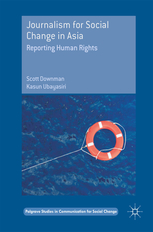 Journalism for social change in Asia: reporting human rights
Journalism for social change in Asia: reporting human rights
Written by: Scott Downman and Kasun Ubayasiri
Espace link: https://espace.library.uq.edu.au/view/UQ:678861
Publisher: Palgrave Macmillan 2017
Details: This book explores the role and purpose of journalism to spark and propagate change by investigating human rights journalism and its capacity to inform, educate and activate change. Downman and Ubayasiri maximize this approach by proposing a new paradigm of reporting through the use of human-focussed news values. This approach is a radical departure from the traditional style that typically builds on abstract concepts. The book will explore human rights journalism through the lens of complex issues such as human trafficking and people smuggling in the Asian context. This is not just a book for journalists, or journalism academics, but a book for activists, human rights advocates or anyone who believes in the power of journalism to change the world.
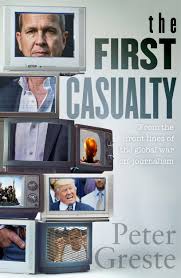 The first casualty
The first casualty
Written by: Peter Greste
Espace link: https://espace.library.uq.edu.au/view/UQ:962ef26
Publisher: Viking 2017
Details: In a world where the first casualty of war is truth, journalism has become the new battleground. Peter Greste spent two decades reporting from the front line in the world’s most dangerous countries before making headlines himself following his own incarceration in an Egyptian prison. Charged with threatening national security, and enduring a sham trial, solitary confinement and detention for 400 days, Greste himself became a victim of the new global war on journalism. Wars have always been about propaganda but today’s battles are increasingly between ideas, and the media has become part of the battlefield. Extremists have staked a place in news dissemination with online postings, and journalists have moved from being witnesses to the struggle to a means by which the war is waged – which makes them a target. Having covered conflicts in Afghanistan, Iraq and Somalia, as well as having spent time in prison in Egypt, Greste is extremely well placed to describe in vivid detail what effect this has on the nature of reporting and the mind of the reporter.
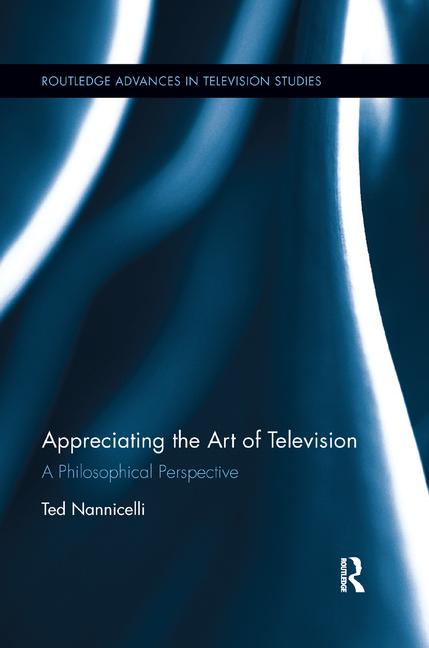 Appreciating the art of television: a philosophical perspective
Appreciating the art of television: a philosophical perspective
Written by: Ted Nannicelli
Espace link: https://espace.library.uq.edu.au/view/UQ:681424
Publisher: Taylor and Francis 2017
Details: Contemporary television has been marked by such exceptional programming that it is now common to hear claims that TV has finally become an art. In Appreciating the Art of Television, Nannicelli contends that televisual art is not a recent development, but has in fact existed for a long time. Yet despite the flourishing of two relevant academic subfields—the philosophy of film and television aesthetics—there is little scholarship on television, in general, as an art form. This book aims to provide scholars active in television aesthetics with a critical overview of the relevant philosophical literature, while also giving philosophers of film a particular account of the art of television that will hopefully spur further interest and debate.
2016
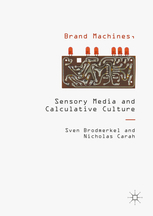 Brand machines, sensory media and calculative culture
Brand machines, sensory media and calculative culture
Written by: Nicholas Carah and Sven Brodmerkel
Espace link: https://espace.library.uq.edu.au/view/UQ:410781
Publisher: Palgrave 2016
Details: This study argues that the defining feature of contemporary advertising is the interconnectedness between consumer participation and calculative media platforms. It critically investigates how audience participation unfolds in an algorithmic media infrastructure in which brands develop media devices to codify, process and modulate human capacities and actions. With the shift from a broadcast to an interactive media system, advertisers have reinvented themselves as the strategic interface between computational media systems and the lived experience and living bodies of consumers. Where once advertising relied predominantly on symbolic appeals to affect consumers, it now centres on the use of computational devices that codify, monitor, analyse and control their behaviours.
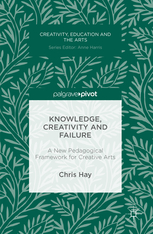 Knowledge, creativity and failure: a new pedagogical framework for creative arts
Knowledge, creativity and failure: a new pedagogical framework for creative arts
Written by: Chris Hay
Espace link: https://espace.library.uq.edu.au/view/UQ:702153
Publisher: Palgrave Macmillan 2016
Details: This book offers a new framework for the analysis of teaching and learning in the creative arts. It provides teachers with a vocabulary to describe what they teach and how they do this within the creative arts. Teaching and learning in this field, with its focus on the personal characteristics of the student and its insistence on intangible qualities like talent and creativity, has long resisted traditional models of pedagogy. In the brave new world of high-stakes assessment and examination-driven outcomes across the education system, this resistance has proven to be a severe weakness and driven creative arts teachers further into the margins. Instead of accepting this relegation teachers of creative arts must set out to capture the distinctiveness of their pedagogy. This book will allow teachers to transcend the opaque metaphors that proliferate in the creative arts, and instead to argue for the robustness and rigour of their practice.
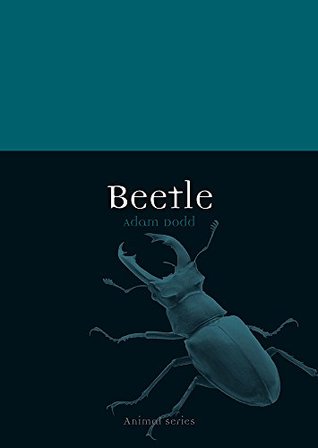 Beetle
Beetle
Written by: Adam Dodd
Espace link: https://espace.library.uq.edu.au/view/UQ:410108
Publisher: Reaktion Books 2016
Details: In Beetle, Adam Dodd offers a richly illustrated, engaging account of the natural and cultural history of the beetle, from its origins more than two hundred and fifty million years ago to the present, when its anatomy is inspiring cutting-edge developments in cybernetics. Along the way, Dodd explores the incredible variety of beetles on earth—there are more than 350,000 species—and their amazing ability to exploit nature’s niches. He also takes readers on a wide-ranging tour of the countless ways that beetles have infiltrated our art, folklore, literature, and religious beliefs. Stolid, secretive, and still-mysterious, beetles continue to exert a powerful pull on naturalists and collectors today, and no beetle fanatic will want to miss Dodd’s winning appreciation of their history.
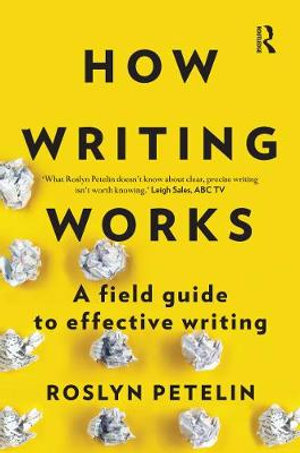 How writing works: a field guide to effective writing
How writing works: a field guide to effective writing
Written by: Roslyn Petelin
Espace link: https://espace.library.uq.edu.au/view/UQ:372574
Publisher: Allen & Unwin 2016
Details: How Writing Works is a lively and practical introduction to the elements of grammar, sentence structure, and style that you need to write well. The book covers social media and writing for online publication, as well as the most common documents in the university and the writing-reliant workplace. How Writing Works should be on the desk of everyone who needs to write: students, professionals in all fields, and creative writers. 'A superb guide to great writing in the modern media era.' Phil Harding, journalist and broadcaster, London
2015
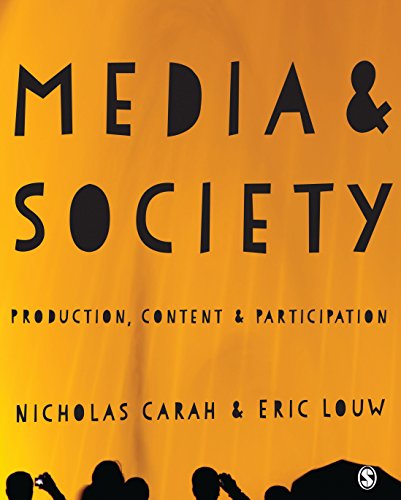 Media and society: production, content and participation
Media and society: production, content and participation
Written by: Nicholas Carah and Eric Louw
Espace link: https://espace.library.uq.edu.au/view/UQ:351868
Publisher: Sage 2015
Details: This book unpacks the role of the media in social, cultural and political contexts and encourages you to reflect on the power relationships that are formed as a result. Structured around the three cornerstones of media studies; production, content and participation, this is an ideal introduction to your studies in media, culture and society.
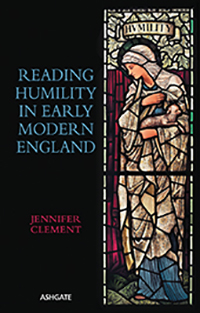 Reading Humility in Early Modern England
Reading Humility in Early Modern England
Written by: Jennifer Clement
Espace link: https://espace.library.uq.edu.au/view/UQ:363149
Publisher: Ashgate 2015
Details: While humility is not especially valued in modern Western culture, Jennifer Clement argues here, it is central to sixteenth- and seventeenth-century understandings of Christian faith and behavior, and is vital to early modern concepts of the self. As this study shows, early modern literary engagements with humility link it to self-knowledge through the practice of right reading, and make humility foundational to any proper understanding of human agency. Yet humility has received little critical interest, and has often been misunderstood as a false virtue that engenders only self-abjection. This study offers an overview of various ways in which humility is discussed, deployed, or resisted in early modern texts ranging from the explicitly religious and autobiographical prose of Katherine Parr and John Donne, to the more politically motivated prose of Queen Elizabeth I and the seventeenth-century reformer and radical Thomas Tryon.
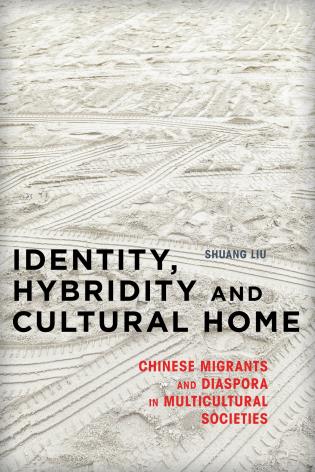 Identity, hybridity and cultural home: Chinese migrants and diaspora in multicultural societies
Identity, hybridity and cultural home: Chinese migrants and diaspora in multicultural societies
Written by: Shuang Lu
Espace link: https://espace.library.uq.edu.au/view/UQ:363701
Publisher: Rowman and Littlefield 2015
Details: Explores identity formation and cultural home for generations of Chinese immigrants living in multicultural societies across the world.
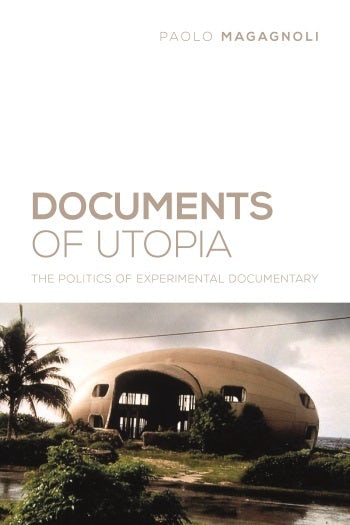 Documents of Utopia: The Politics of Experimental Documentary
Documents of Utopia: The Politics of Experimental Documentary
Written by: Paolo Maganoli
Espace link: https://espace.library.uq.edu.au/view/UQ:353723
Publisher: Columbia University Press 2015
Details: This timely volume discusses the experimental documentary projects of some of the most significant artists working in the world today: Hito Steyerl, Joachim Koester, Tacita Dean, Matthew Buckingham, Zoe Leonard, Jean-Luc Moulène, Ilya and Emilia Kabakov, Jon Thomson and Alison Craighead, and Anri Sala. Their films, videos, and photographic series address failed utopian experiments and counter-hegemonic social practices.
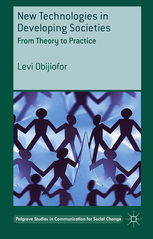 New technologies in developing societies: from theory to practice
New technologies in developing societies: from theory to practice
Written by: Levi Obijiofor
Espace link: https://espace.library.uq.edu.au/view/UQ:355895
Publisher: Palgrave Macmillan 2015
Details: New Technologies in Developing Societies examines critically, and from theoretical, practical and policy perspectives how new technologies are transforming day-to-day human activities in Africa and other developing regions. In particular it addresses how technologies are harnessed to enhance socioeconomic conditions, and how people use technologies to empower themselves and to foster a strong deliberative democracy. It also studies how they deal with the challenges that new technologies pose to the protection of intellectual property rights of indigenous people, and the struggles between tradition and modernity in the HIV/AIDS prevention campaign.
 Prison Shakespeare: For these deep shames and great indignities
Prison Shakespeare: For these deep shames and great indignities
Written by: Rob Pensaifini
Espace link: https://espace.library.uq.edu.au/view/UQ:372231
Publisher: Palgrave 2015
Details: This book explores the development of the global phenomenon of Prison Shakespeare, from its emergence in the 1980s to the present day. It provides a succinct history of the phenomenon and its spread before going on to explore one case study the Queensland Shakespeare Ensemble's (Australia) Shakespeare Prison Project in detail. The book then analyses the phenomenon from a number of perspectives, and evaluates a number of claims made about the outcomes of such programs, particularly as they relate to offender health and behaviour. Unlike previous works on the topic, which are largely individual case studies, this book focuses not only on Prison Shakespeare's impact on the prisoners who directly participate, but also on prison culture and on broader social attitudes towards both prisoners and Shakespeare.
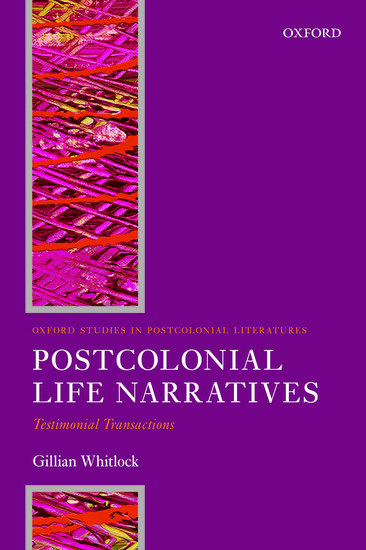 Postcolonial Life Narratives
Postcolonial Life Narratives
Written by: Gillian Whitlock
Espace link: https://espace.library.uq.edu.au/view/UQ:350669
Publisher: Oxford University Press 2015
Details: Postcolonial Life Narrative draws together two dynamic fields of contemporary literature and criticism, postcolonialism and life narrative, to create a new assemblage: postcolonial life narrative. Focusing in particular on testimonial narrative, from slave narrative in the late eighteenth century to contemporary Anglophone life narrative from Africa, Australia, the Caribbean, Palestine, North America, and India, this study follows texts on the move through adaptation, appropriation, and remediation. For postcolonial subjects life narrative offers extraordinary opportunities to present accounts of social injustice and oppression, of violence and social suffering. Testimonial narrative can reach across cultures to produce intimate attachments between those who testify and those who bear witness to legacies of apartheid, slavery, rape warfare, genocide, and dispossession.
2014
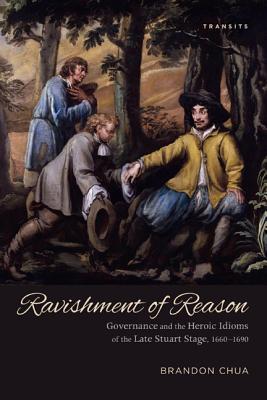 Ravishment of reason: governance and the heroic idioms of the late Stuart stage, 1660-1690
Ravishment of reason: governance and the heroic idioms of the late Stuart stage, 1660-1690
Written by: Brandon Chua
Espace link: https://espace.library.uq.edu.au/view/UQ:326052
Publisher: Rowman and Littlefield 2014
Details: Ravishment of Reason examines the heroic dramas that populated the restored English theatres in the later seventeenth century, reading them as complex and sophisticated responses to a crisis of public life in the wake of the midcentury regicide and revolution. The trial and execution of Charles I in 1649, and the relatively passive role played by his heir in the eventual reinstitution of the Stuart monarchy in 1660, drew unsettling attention to the primacy of the approval, affections and desires of subjects in enacting and maintaining structures of political authority. In the wake of a violent conflict between King and Parliament, the political and imaginative literature of the later seventeenth century repeatedly asked and offered several competing answers to the question of how political consent could be secured from autonomous and self-determining agents.
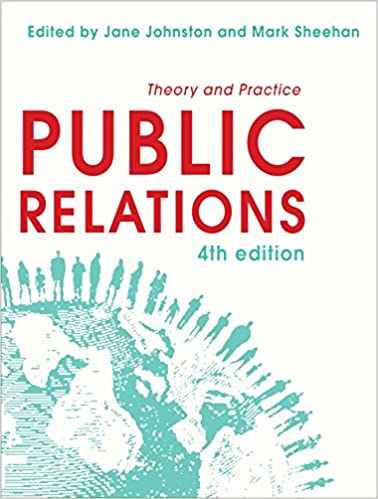 Theory and Practice: Public Relations 4th Edition
Theory and Practice: Public Relations 4th Edition
Written by: Jane Johnston
Espace link: https://espace.library.uq.edu.au/view/UQ:688989
Publisher: Allen & Unwin Academic 2014
Details: In this widely used introduction to professional practice, leading academics and practitioners outline the core principles of public relations in business, government and the third sectors. They show how to develop effective public relations strategies and explain how to research, run and evaluate a successful public relations campaign. Drawing on a range of communication and public relations theories, they discuss how to work with key publics, using all forms of media for maximum impact. It is richly illustrated with examples and case studies from Australia, New Zealand, Asia and other countries.
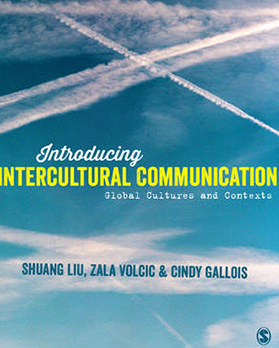 Introducing Intercultural Communication: Global Cultures and Contexts
Introducing Intercultural Communication: Global Cultures and Contexts
Written by: Shuang Liu, Zala Volcic and Cindy Gallois
Espace link: https://espace.library.uq.edu.au/view/UQ:350335
Publisher: Sage 2014
Details: Introducing Intercultural Communication uses examples and case studies from around the world to situate communication theory in a truly global perspective. Covering the essentials from international conflict to migration and social networking, this book shows students how to master the skills and concepts at work in how we communicate and understand each other across cultural boundaries.
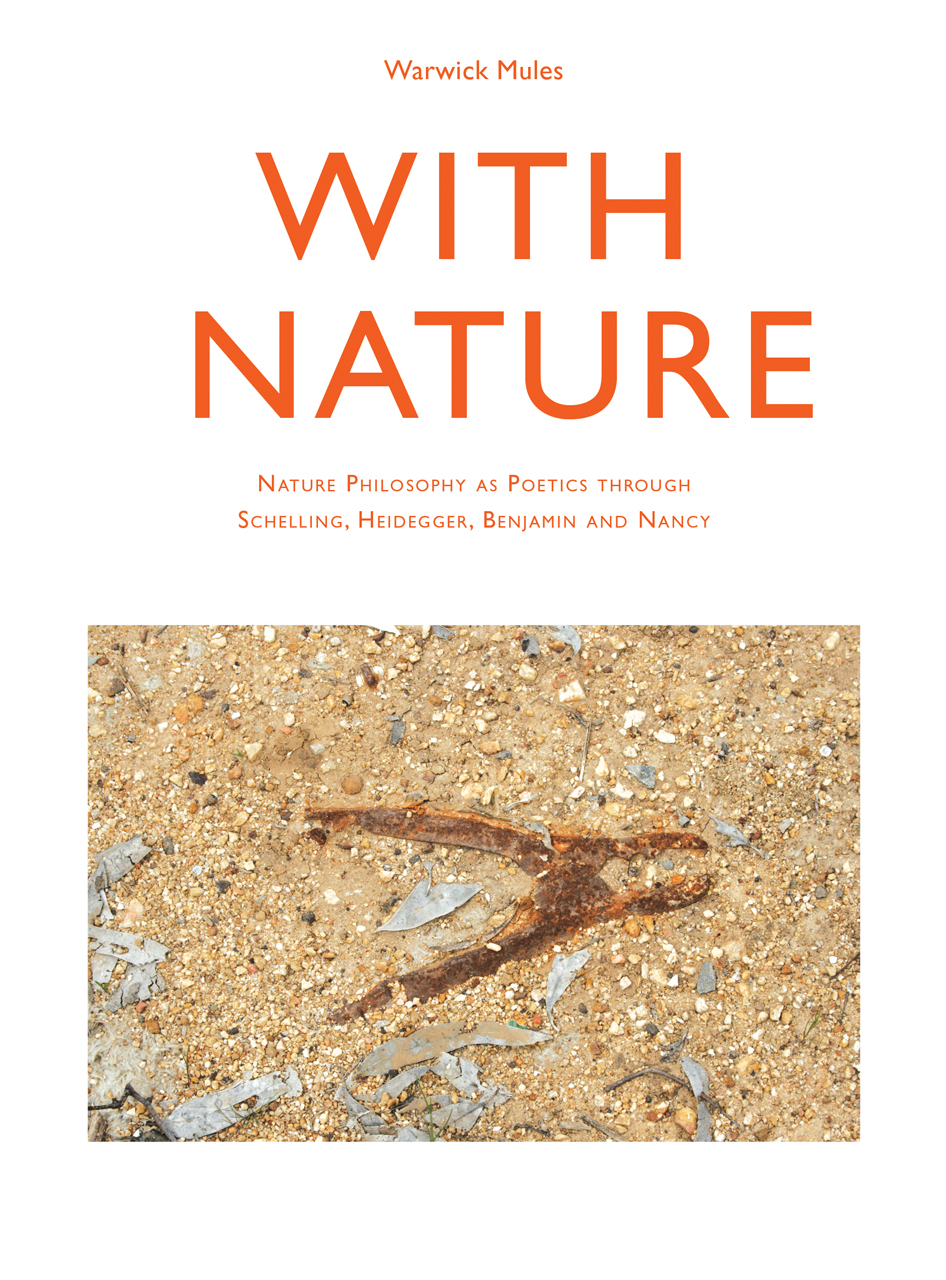 With nature: nature philosophy as poetics through Schelling, Heidegger, Benjamin and Nancy
With nature: nature philosophy as poetics through Schelling, Heidegger, Benjamin and Nancy
Written by: Warwick Mules
Espace link: https://espace.library.uq.edu.au/view/UQ:340195
Publisher: Intellect 2014
Details: With Nature provides new ways to think about our relationship with nature in today's technologically mediated culture. Warwick Mules makes original connections with German critical philosophy and French poststructuralism in order to examine the effects of technology on our interactions with the natural world. In so doing, the author proposes a new way of thinking about the eco-self in terms of a careful sharing of the world with both human and non human beings. With Nature ultimately argues for a poetics of everyday life that affirms the place of the human-nature relation as a creative and productive site for ecological self-renewal and redirection.
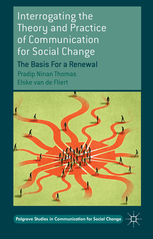 Interrogating the Theory and Practice of Communication for Social Change
Interrogating the Theory and Practice of Communication for Social Change
Written by: Pradip Thomas and Elske van de Fliert
Espace link: https://espace.library.uq.edu.au/view/UQ:349351
Publisher: Palgrave 2014
Details: A new addition to the Palgrave Studies in Communication for Social Change series, this book sets the stage for subsequent books by identifying and analysing the current gaps in the field. It critically reviews the theory, practice and strategies of Communication for Social Change in relation to occurring structures, policies and discourses.
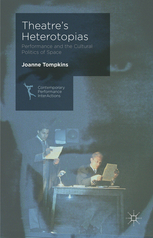 Theatre's heterotopias: performance and the cultural politics of space
Theatre's heterotopias: performance and the cultural politics of space
Written by: Joanne Tompkins
Espace link: https://espace.library.uq.edu.au/view/UQ:337704
Publisher: Palgrave 2014
Details: Theatre's Heterotopias analyses performance space, using the concept of heterotopia: a location that, when apparent in performance, refers to the actual world, thus activating performance in its culture. Case studies cover site-specific and multimedia performance, and selected productions from the National Theatre of Scotland and the Globe Theatre.
2013
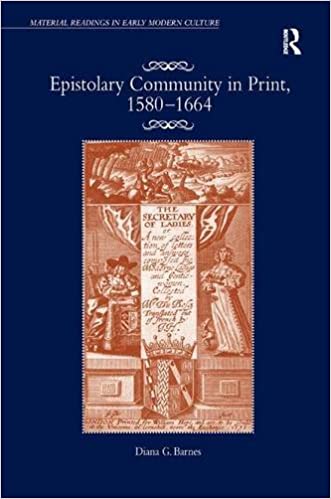 Epistolary community in print, 1580-1664
Epistolary community in print, 1580-1664
Written by: Diana Barnes
Espace link: https://espace.library.uq.edu.au/view/UQ:312402
Publisher: Ashgate 2013
Details: This book provides a genealogy of epistolary discourse beginning with an introductory discussion of Gabriel Harvey and Edmund Spenser’s Wise and Wittie Letters (1580), and opening into chapters on six printed letter collections generated at times of political change. Among the authors whose letters are examined are Angel Day, Michael Drayton, Jacques du Bosque and Margaret Cavendish. Epistolary Community identifies broad patterns that were taking shape, and constantly morphing, in English printed letters from 1580 to 1664, and then considers how the six examples of printed letters selected for discussion manipulate this generic tradition to articulate ideas of community under specific historical and political circumstances.
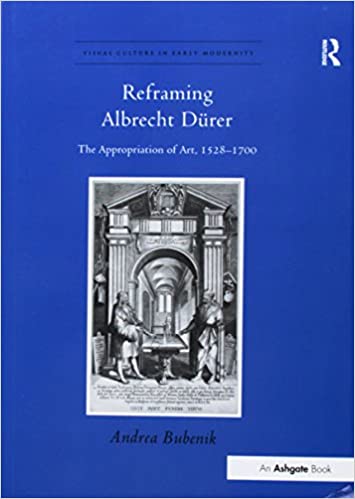 Reframing Albrecht Durer: the appropriation of art, 1528-1700
Reframing Albrecht Durer: the appropriation of art, 1528-1700
Written by: Andrea Bubenik
Espace link: https://espace.library.uq.edu.au/view/UQ:292784
Publisher: Ashgate 2013
Details: Focusing on the ways his art and persona were valued and criticized by writers, collectors and artists subsequent to his death, this book examines the reception of the works of Albrecht Dürer. The author traces carefully how Durer's paintings, prints, drawings and theoretical writings traveled widely, and were appropriated into new contexts and charged with different meanings. The volume includes illustrations of numerous imitative works after Durer.
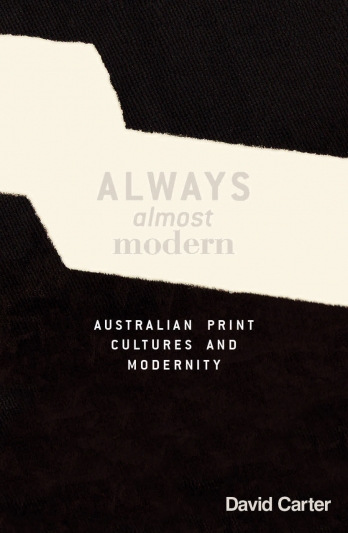 Always almost modern: Australian print cultures and modernity
Always almost modern: Australian print cultures and modernity
Written by: David Carter
Espace link: https://espace.library.uq.edu.au/view/UQ:308429
Publisher: Australian Scholarship Publishing
Details: Was Australian culture born modern or has it always been behind the game, never quite modern enough? Was it always already or only always almost modern? David Carter’s essays examine the complex engagements of Australian writers, artists, editors and consumers with 20th-century modernity, social and political crisis, and the impact of modernisms. Always Almost Modern ranges from the great mid-century novels of authors such as Eleanor Dark and M. Barnard Eldershaw to the unprecedented bestseller that was They’re a Weird Mob, from famous to largely forgotten local magazines and to film and television, and from the avant-garde to nationalism, communism and the middlebrow. Chapters engage with key themes in contemporary literary and cultural studies, exploring new ways of understanding Australian culture in terms of its modernity and transnationalism.
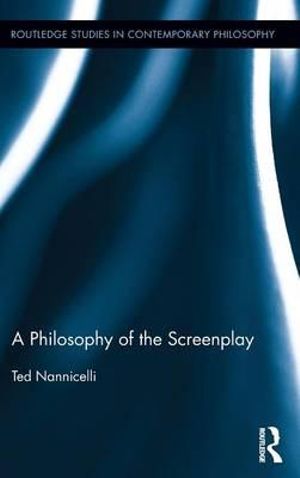 A Philosophy of the Screenplay
A Philosophy of the Screenplay
Written by: Ted Nannicelli
Espace link: https://espace.library.uq.edu.au/view/UQ:323259
Publisher: Routledge 2013
Details: Recently, scholars in a variety of disciplines-including philosophy, film and media studies, and literary studies-have become interested in the aesthetics, definition, and ontology of the screenplay. To this end, this volume addresses the fundamental philosophical questions about the nature of the screenplay: What is a screenplay? Is the screenplay art-more specifically, literature? What kind of a thing is a screenplay? Nannicelli argues that the screenplay is a kind of artefact; as such, its boundaries are determined collectively by screenwriters, and its ontological nature is determined collectively by both writers and readers of screenplays. Any plausible philosophical account of the screenplay must be strictly constrained by our collective creative and appreciative practices, and must recognize that those practices indicate that at least some screenplays are artworks.
2012
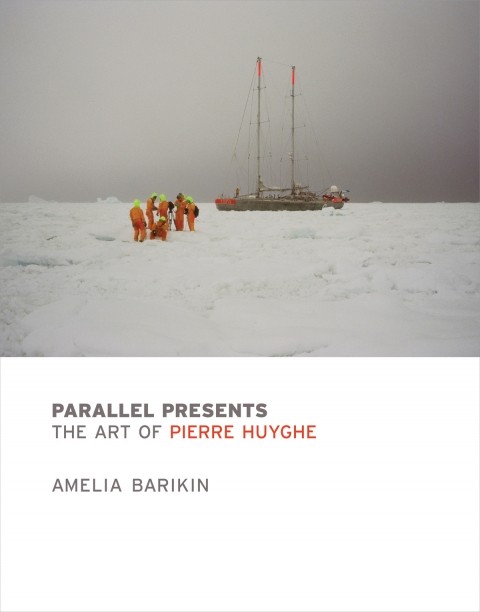 Parallel Presents: The Art of Pierre Huyghe
Parallel Presents: The Art of Pierre Huyghe
Written by: Amelia Barikin
Espace link: https://espace.library.uq.edu.au/view/UQ:291126
Publisher: MIT Press 2012
Details: Over the past two decades, French artist Pierre Huyghe has produced an extraordinary body of work in constant dialogue with temporality. Investigating the possibility of a hypothetical mode of timekeeping—“parallel presents”—Huyghe has researched the architecture of the incomplete, directed a puppet opera, founded a temporary school, established a pirate television station, staged celebrations, scripted scenarios, and journeyed to Antarctica in search of a mythological penguin. In this first book-length art historical examination of Huyghe and his work, Amelia Barikin traces the artist's continual negotiation with the time codes of contemporary society.
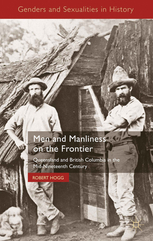 Men and Manliness on the Frontier: Queensland and British Columbia in the mid-nineteenth Century
Men and Manliness on the Frontier: Queensland and British Columbia in the mid-nineteenth Century
Written by: Robert Hogg
Espace link: https://espace.library.uq.edu.au/view/UQ:286454
Publisher: Palgrave 2012
Details: In mid-nineteenth-century Britain, there existed a dominant discourse on what it meant to be a man –denoted by the term 'manliness'. Based on the sociological work of R.W. Connell and others who argue that gender is performative, Robert Hogg asks how British men performed manliness on the colonial frontiers of Queensland and British Columbia.
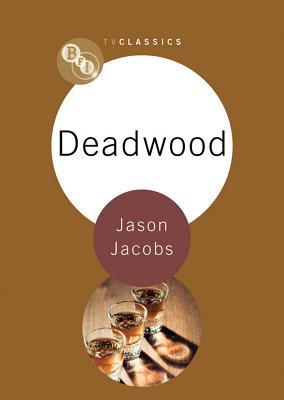 Deadwood
Deadwood
Written by: Jason Jacobs
Espace link: https://espace.library.uq.edu.au/view/UQ:278679
Publisher: Palgrave 2012
Details: Jason Jacobs' study of Deadwood (HBO, 2004-6) combines an in-depth production and reception history with astute analysis of the series' key themes and aesthetic strategies to argue that the show not only marked a radical revision of the Western genre but an outstanding work of television art. [publisher synopsis]
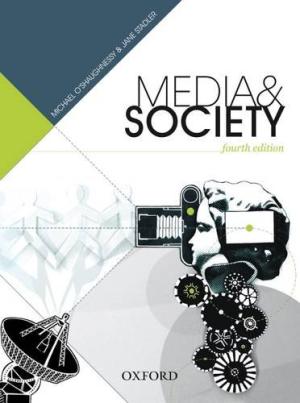 Media and Society
Media and Society
Written by: Jane Stadler, Michael O'Shaughnessy, Sarah Casey
Espace link: https://espace.library.uq.edu.au/view/UQ:408001
Publisher: Oxford University Press 2012
Details: The essential text for studying the role and impact of media within contemporary society. The only book to take a semiotic approach to media. Provides a clear explanation of complex theories and ideas like feminism and ethnicity.
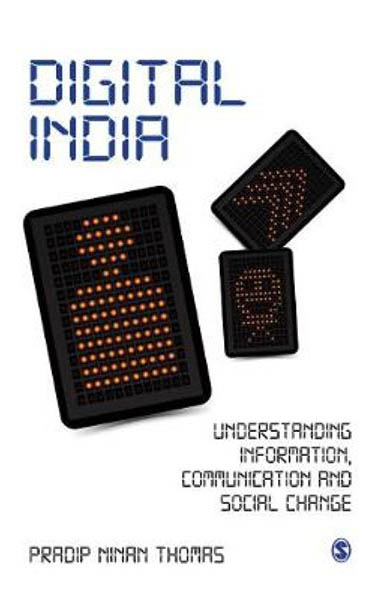 Digital India. Understanding Information, Communication and Social Change
Digital India. Understanding Information, Communication and Social Change
Written by: Pradip Thomas
Espace link: https://espace.library.uq.edu.au/view/UQ:277812
Publisher: Sage 2012
Details: India's tryst with the digital is an extensive project and while much media attention is given to flagship projects, the story is also of marginalized peoples, in cities, appropriating digital leaks, using the digital and thereby contributing to the digital economy. It is this battle between enclosing the digital and extending access to it that makes the story of the digital in India an exciting one. Digital India is a case study-based, critical introduction to the theory and practice of the digital in social change. The volume—with its chapters on telecommunications, software, mobile telephony, e-governance, ICT4D, software patenting, public sector software and cultural piracy—offers an entry point into an understanding of the contested nature of the digital in India via an analysis of theory and practice.
2011
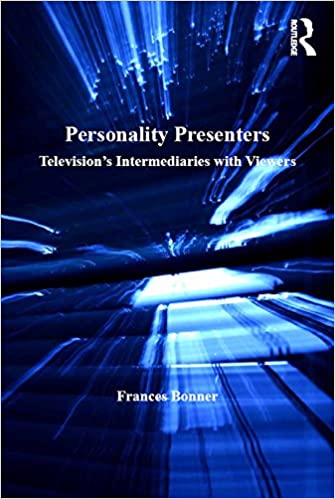 Personality Presenters. Television's Intermediaries with Viewers
Personality Presenters. Television's Intermediaries with Viewers
Written by: Frances Bonner
Espace link: https://espace.library.uq.edu.au/view/UQ:255954
Publisher: Ashgate 2011
Details: With a focus on non-fiction entertainment shows such as game shows, lifestyle and reality shows, chat, daytime and talk shows, this book explores issues of consumer culture, advertising and celebrity, as well as the connection of presenters with ethical issues. Offering detailed case studies of internationally recognised presenters, as well comparisons between national presenters from the UK and Australia, Personality Presenters provides a rich discussion of television presenters as significant conduits in the movement of ideas. As such, it will appeal to sociologists as well as those working in the fields of popular culture, cultural and media studies and cultural theory.
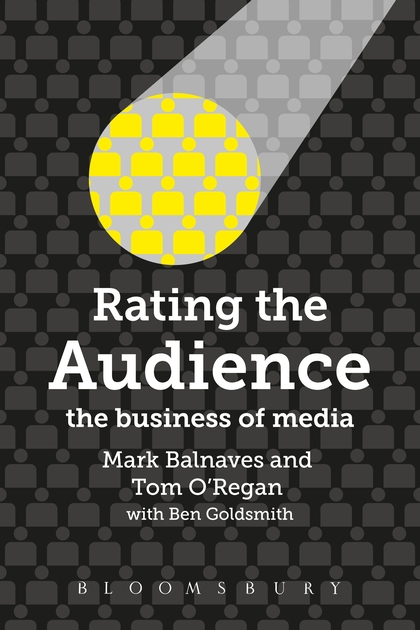 Rating the Audience. The Business Media
Rating the Audience. The Business Media
Written by: Tom O'Regan, Mark Balnaves and Ben Goldsmith
Espace link: https://espace.library.uq.edu.au/view/UQ:268606
Publisher: Bloomsbury Academic 2011
Details: Knowing, measuring and understanding media audiences have become a multi-billion dollar business. But the convention that underpins that business, audience ratings, is in crisis. Rating the Audience is the first book to show why and how audience ratings research became a convention, an agreement, and the first to interrogate the ways that agreement is now under threat.Taking a historical approach, the book looks at the evolution of audience ratings and the survey industry. It goes on to analyse today's media environment, looking at the role of the internet and the increased difficulties it presents for measuring audiences. The book covers all the major players and controversies, such as Facebook's privacy rulings and Google's alliance with Nielsen.
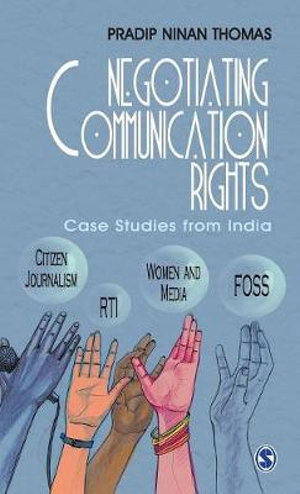 Negotiating Communication Rights. Case Studies from India
Negotiating Communication Rights. Case Studies from India
Written by: Pradip Thomas
Espace link: https://espace.library.uq.edu.au/view/UQ:243366
Publisher: Sage 2011
Details: Communication rights are a barometer of the degree of transparency and fairness in a democracy. India, the world’s largest democracy, has found itself at the center of this debate. This book, through five case studies in India, explores communication rights movements here. It encompasses pivotal areas of movements, such as, Right to Information, Free and Open Source Software, Women and Media, and Community Radio and Citizen Journalism.
2010
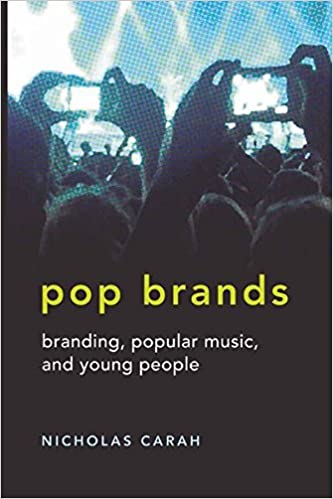 Pop Brands. Branding Popular Music and Young People
Pop Brands. Branding Popular Music and Young People
Written by: Nicholas Carah
Espace link: https://espace.library.uq.edu.au/view/UQ:220400
Publisher: Peter Lang 2010
Details: Corporations engage young people and musicians in brand-building activities. These activities unfold in media-dense social spaces. Social networking sites, the user-generated content of web 2.0, live music events, digital cameras and cell phones are all used in constructing valuable brands. This book addresses the integration of popular music culture, corporate branding, and young peoples mediated cultural practices. These intersections provide a rich site for examining how young people build brands within spaces and practices that they perceive as meaningful. The book is based on extensive ethnographic empirical research, drawing on participant observation, textual analysis and interviews with young people, musicians, marketers and other participants in the cultural industries. Contemporary theories of marketing and branding are brought together with critical and cultural accounts of mediated social life. The book explores the distinctive concerns and debates of these different perspectives and the lively interface between them.
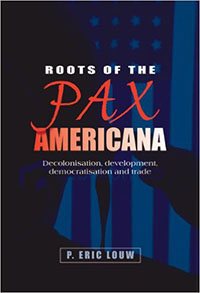 Roots of the Pax Americana Decolonziation, development, democratization and trade
Roots of the Pax Americana Decolonziation, development, democratization and trade
Written by: Eric Louw
Espace link: https://espace.library.uq.edu.au/view/UQ:220494
Publisher: Manchester University Press 2010
Details: This book examines how and why Americans built an informal trading empire and why the British Empire needed to be removed before a Pax Americana could be built. The Pax Americana is a phenomenon of global significance, and this fascinating book offers a systematic explanation for the rise of this super empire and examines in detail how it is governed. A core feature of the book is a concern with America’s vision of the world and how the USA has attempted (especially since 1945) to export this vision across the globe. The book identifies and examines the underlying discourses and belief systems that gave rise to a Pax Americana. An eclectic range of methodologies and theories are deployed to explain the phenomenon of this informal empire, ranging from materialist (political economy) explanations of ‘US imperialism’ through to those explanations grounded in the non-materialist realm of values, ideas and world views.
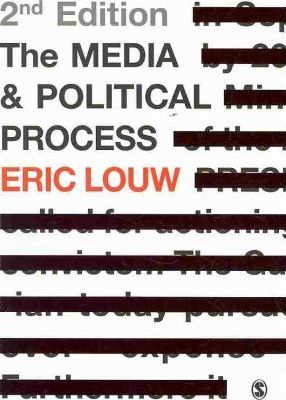 The Media and Political Process
The Media and Political Process
Written by: Eric Louw
Espace link: https://espace.library.uq.edu.au/view/UQ:220498
Publisher: Sage 2010
Details: Political processes never stand still, and this revised second edition explores the mediatisation of the political process in light of recent developments, from Vladimir Putin's growth into a political celebrity, to the activities of spin doctors in the 2008 US Presidential Elections. Providing a comprehensive overview of the evolution, operation and terminology of political communication, this text is an accessible, lively resource for students of political communication and media and politics, and will be important further reading for students of journalism, public relations and cultural studies.
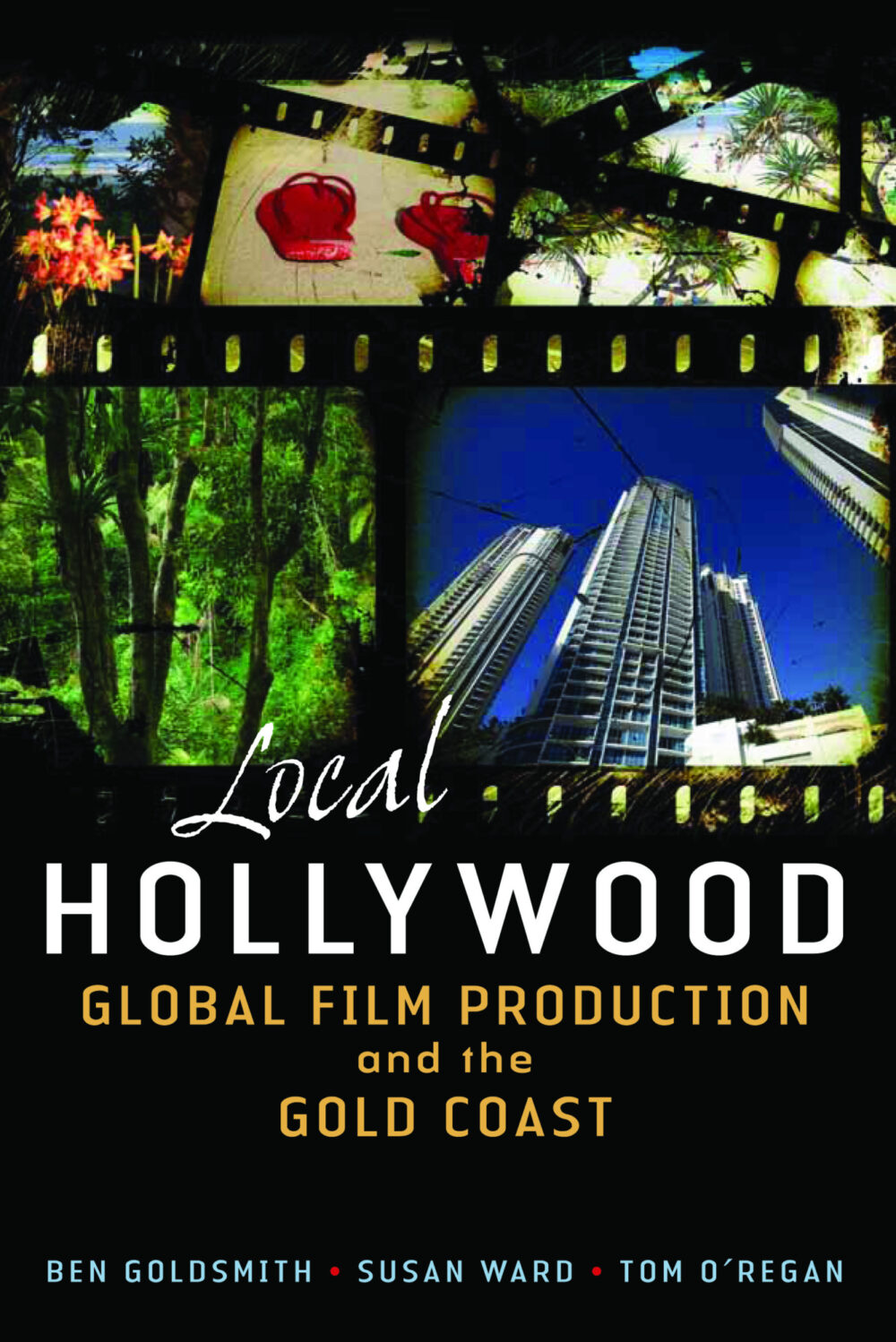 Local Hollywood Global Film Production and the Gold Coast
Local Hollywood Global Film Production and the Gold Coast
Written by: Tom O'Regan, Susan Ward, Ben Goldsmith
Espace link: https://espace.library.uq.edu.au/view/UQ:229449
Publisher: UQP 2010
Details: This new book gives an unprecedented insight into how the Gold Coast became the first outpost of Hollywood in Australia. When a combination of forces drove Hollywood studios and producers to work outside California, the Gold Coast’s unique blend of government tax support, innovative entrepreneurs and diverse natural settings made it a perfect choice to host Hollywood productions. Local Hollywood makes an essential contribution to the field of film and media studies, as well as giving film buffs a behind-the-scenes tour of the film industry.
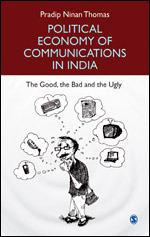 Political Economy of Communications in India. The Good the Bad and the Ugly
Political Economy of Communications in India. The Good the Bad and the Ugly
Written by: Pradip Thomas
Espace link: https://espace.library.uq.edu.au/view/UQ:416668
Publisher: Sage 2010
Details: This book is a critical study of the political economy of communications in India. It explores the ways in which contexts, structures, policies and processes at national and international levels shape media structures and explores how a political economy-inspired approach can be used to understand both media dominance and resistance. It deals with a variety of issues that are key to understanding the political economy of communication—from intellectual property to audio-visual trade and media ownership, liberalisation, privatisation, and media politics.
